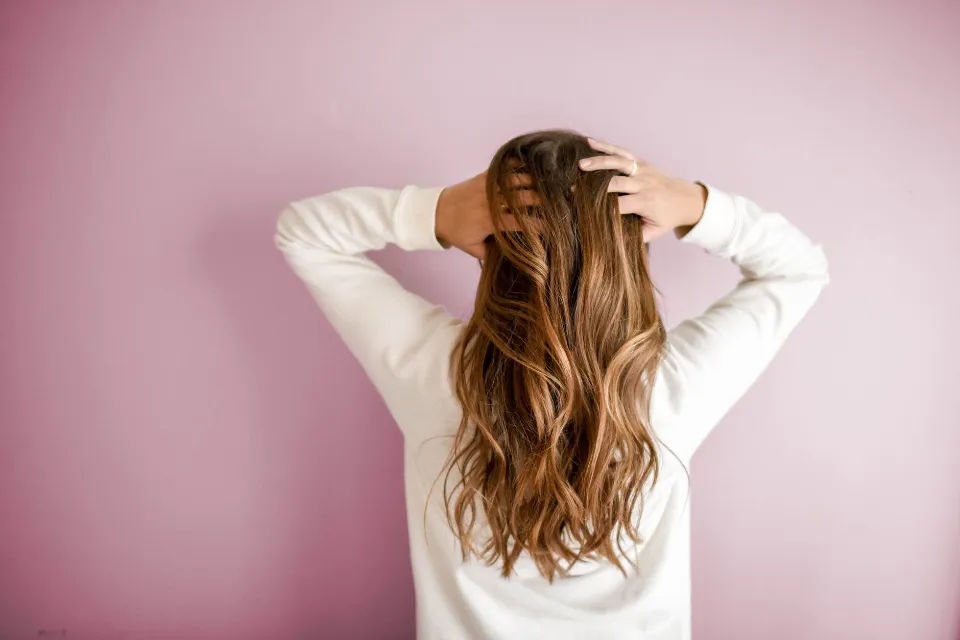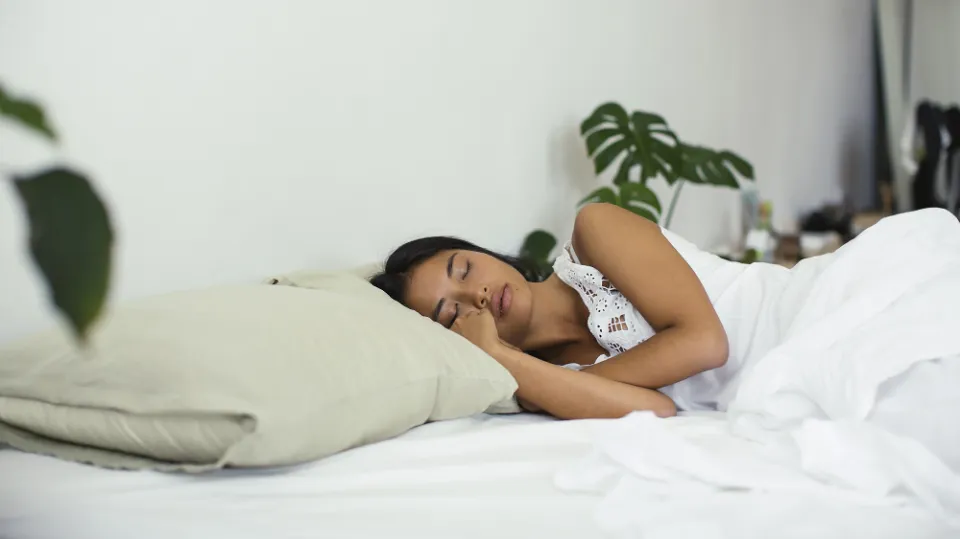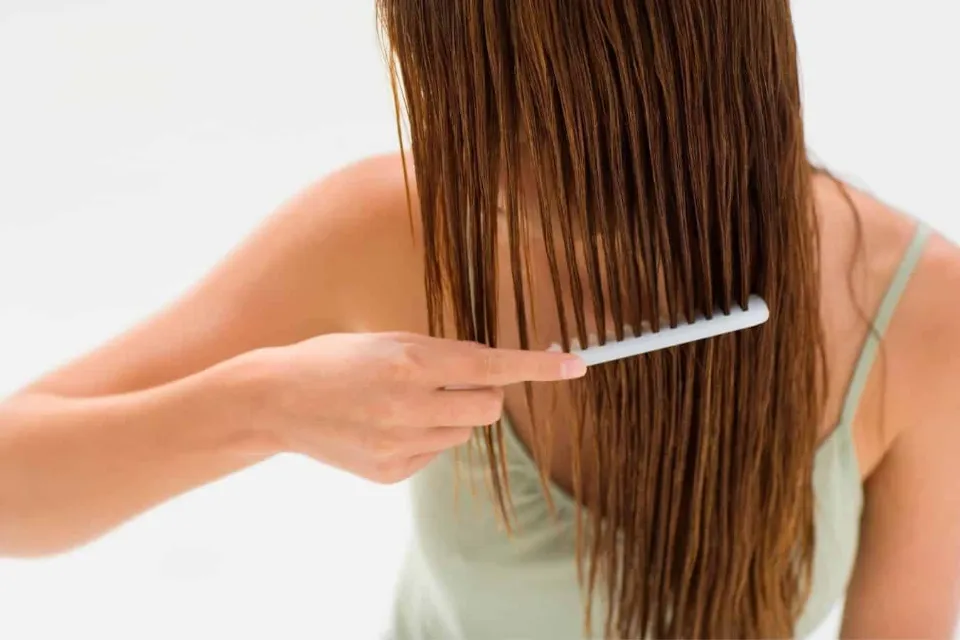Stress-related hair loss is typically brought on by a condition called telogen effluvium. So how to regain hair loss from stress?
Solutions should vary depending on the type of hair loss. With stress-related hair loss, there are actually a couple of things you can try.
Continue reading to learn the exact causes of hair loss as well as remedies for stress-related hair loss!
Why Does Stress Cause Hair Loss?
It’s common to think of stress as a mental health condition – which, first and foremost, it is – but it also has an impact on the body, with hair loss often being a symptom.
Hair loss is typically brought on by a disruption in the hair cycle, but when stress is the culprit, cortisol levels may also rise as a result.
High levels of this hormone will interfere with the hair growth cycle’s normal operations.
There are several types of hair loss that can be triggered by stress, including:
Telogen Effluvium
Telogen effluvium is most likely a result of stress. In this condition, the hair follicles are forced into the resting stage of the hair cycle.
In a typical hair cycle, about 90% of the follicles are in the growth phase and the other 10% are in the rest stage.
A significant increase in hair shedding caused by an increase in follicles in the resting phase can cause a noticeable and widespread thinning of the hair.
Alopecia Areata
Alopecia areata, a type of hair loss brought on by the immune system attacking the hair follicles, is frequently characterized by round bald patches that spread across the scalp.
Since the hormone cortisol, which is released when we are stressed and is known to have an impact on the immune system, is one of the factors thought to be responsible for this condition, extreme stress is one of them.
Trichotillomania
This condition, which causes the sufferer to have an uncontrollable urge to pull out their hair, can occasionally be brought on by stress and anxiety.
Reduced Nutrients and Blocked Pores
Stress and anxiety can also reduce the amount of nutrients that reach the hair follicles and increase sebum production, which can clog pores on the scalp, both of which will inhibit growth.
It’s also important to note that the way the hair growth cycle works means that you won’t see hair loss at the time of the stressful event, it’s likely to be around 6-12 weeks after.
You Might Also Like:
- Does Alcohol Cause Hair Loss?
- Can Hair Dye Cause Hair Loss?
- Does Creatine Cause Hair Loss?
- Does Dandruff Cause Hair Loss?
- Does Hard Water Cause Hair Loss?
- Does Dry Shampoo Cause Hair Loss?
- Does Head and Shoulders Cause Hair Loss?
How to Regain Hair Loss from Stress: 8 Effective Methods
Let’s see nine ways to regain hair loss from stress.
Eat a Healthy Diet

Your body and hair will benefit from eating a healthy diet. Eat plenty of fruits, vegetables, whole grains, healthy fats, and lean proteins to help your body heal from stress-related hair loss.
When figuring out how to stop stress-related hair loss, protein is especially crucial. Protein is a necessary component of hair, so include plenty of it in your diet.
Poultry (such as chicken and turkey), quinoa, eggs, fish, and soy products like tofu are all good sources of protein.
Also Read: Can Hair Loss Be Reversed?
Get Enough Sleep
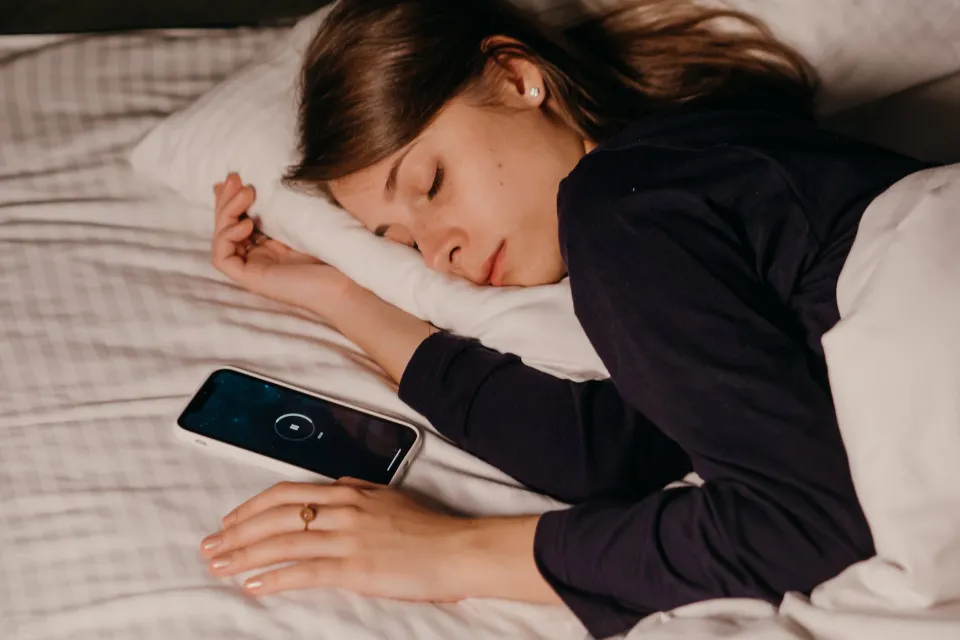
The problem gets worse because stress can interfere with regular sleep patterns. Sleep for seven to nine hours every night.
Check your sleeping habits if you’re having trouble getting enough rest. Set a consistent wake-up and sleep schedule, even on the weekends. Maintain the same evening routine to help you unwind before bed (one of the stress-reduction strategies listed below could be a great addition!). At least an hour before going to bed, stay away from screens in a cool, dark room.
Also Read: How to Stop Hair Loss in Teenage Girl?
Take a Supplement
Avoid skipping out on eating a nutritious diet full of the foods mentioned above if you want to learn how to reverse hair loss caused by stress. Vitamins A, B6, B12, and C are a few examples of the vitamins that can support a healthy immune system.
14 vitamins and minerals, including zinc and biotin, are present in Hairlust Hair Formula Gummies for Women and help to maintain healthy hair.
If you want to give your hair a high dose of biotin along with other vitamins and minerals in a single, convenient supplement, these gummies are ideal for you.
And it’s simple to remember to take them because they’re in a tasty gummy form. In tablet and gummy form, Hairlust carries supplements for both sexes.
Massage Your Scalp With Massager
One of the most underappreciated but efficient ways to promote hair growth is using a scalp massager. They energize the scalp and boost blood flow to the hair follicle, or pocket, where hair grows.
It stimulates the scalp and promotes the growth of hair.
By gradually supplying the follicles with more nutrients and clearing the scalp of toxins and buildup, improving follicle nutrition will also aid in the growth of healthier hair.
Use Coconut Oil
Coconut oil is full of fatty acids that can nourish and moisturize hair, and its antibacterial and antifungal properties can help to keep your scalp healthy. Coconut oil can provide deep conditioning for women with dry or damaged hair.
Apply the oil to the hair and scalp, let it sit for at least 30 minutes, and then rinse it off with a gentle shampoo.
Depending on how badly the hair was damaged, this treatment could be applied once or twice a week.
Use Aloe Vera
Enzymes found in aloe vera may aid in promoting healthy hair growth and calming an inflamed scalp. Aloe vera gel can be used as a natural conditioner by women with sensitive or dry scalp.
Use a mild shampoo to remove the gel after applying it to the hair and scalp and waiting 10 to 15 minutes. Every week at the very least, do it.
Manage Stress
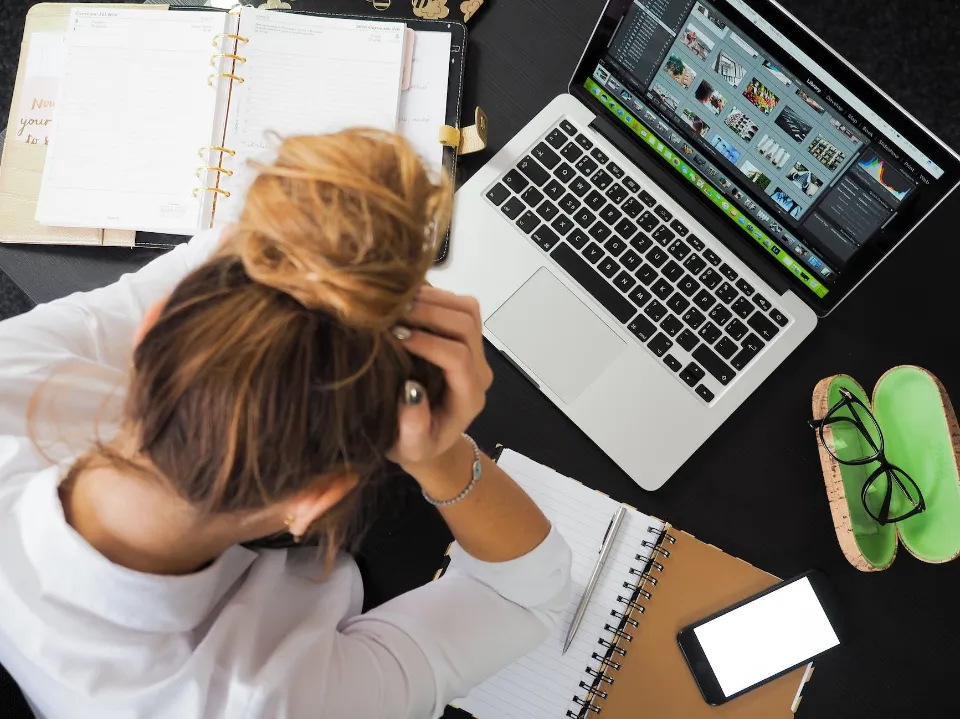
Along with giving your hair the best care possible, lowering your overall stress levels can improve your hair’s health and growth. Future hair loss brought on by stress may also be avoided with this method.
Some popular and effective ways to reduce general stress are:
- Spend time in nature
- Discuss your emotions with a trusted person
- Take up a hobby you enjoy
- Explore meditative practices such as yoga, mindfulness or Tai Chi
- Relaxing self-care habits such as scented baths
- Reducing screen time and the number of electronic devices in your home, especially your bedroom
- Playing a musical instrument or pursuing a creative outlet such as painting or writing
- committing to a club or athletic team.
Try a Topical Treatment
While a topical treatment encourages hair growth from the outside, a hair growth supplement encourages regular hair growth from within.
After experiencing hair loss due to stress, using both promotes hair growth.
Boost Root Volume
You can also use particular styling products to give the appearance of fuller hair while your hair follicles are healing from stress-related hair loss.
How Long Does Hair Loss from Stress Take to Come Back?
It depends on a number of variables, such as the thickness and length of the hair, the rate at which your hair naturally grows, and how well you take care of your hair throughout the growth cycle. However, the majority of people typically need six months to grow an inch of new hair.
You can manage stress and get it under control with the right treatment options, relaxation techniques, and a healthy diet.
In addition to improving your general well-being, doing this will hasten the growth of your hair.
Conclusion: How to Regain Hair Loss from Stress
Hair loss caused by stress might be a temporary situation, but that doesn’t make it any less upsetting. You’ll experience regrowth more quickly if you start working on changes right away.
I hoped that this article would help you learn how to stop stress-related hair loss. Have you ever experienced hair loss as a result of stress? Comment below and let me know.
FAQs
What Are the Symptoms of Hair Loss Due to Stress?
A simple combing or hair wash may cause affected hairs to fall out abruptly.
Is Hair Loss from Stress Permanent?
There is no need for hair loss and stress to be permanent. Additionally, if you manage your stress, your hair may start to grow back.
Can Lack of Sleep Cause Hair Loss?
Sleep deprivation is a form of stress and stress is known to affect hair loss.

